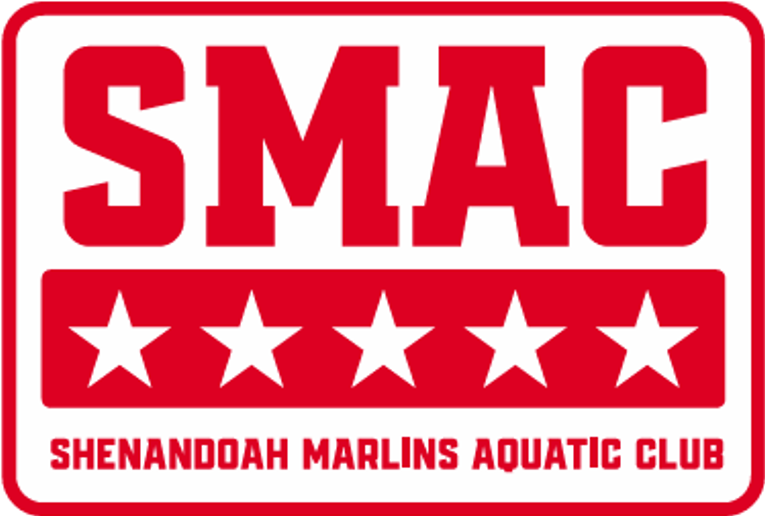USA Swimming’s Safe Sport Program
USA Swimming is committed to providing a healthy and positive environment free from abuse for all its members. USA Swimming’s Safe Sport program, a comprehensive abuse prevention program, consists of a multi-layered approach to keep kids safe, including: required policies and best practice guidelines; mandatory screening, including criminal background checks and employment screening; training and education; monitoring, supervision and mandatory reporting. These measures are informed by experts in the field of child safety and are among the strongest safeguards found in youth-serving organizations.
SMAC is committed to protecting your swimmers by following the Safe Sport Policies defined by USA Swimming. All SMAC athletes and parents need to read and understand all information on this page.
To Report a Safe Sport Concern involving SMAC swimmers, coaches or parents please contact the SMAC Safe Sport Coordinator:
Brad Boelter [email protected] (540) 622-7056
If you are not comfortable discussing the concern with the SMAC Safe Sport Coordinator, SMAC Head Coach or SMAC Boosters please reach out to either USA Swimming or US Center for Safe Sport as listed below.
- To Report a Safe Sport Concern with swimming please contact USA Swimming at (719) 866-4578 https://www.usaswimming.org/safe-sport/deal-with-a-safe-sport-concern
You may also contact the U.S. Center for Safe Sport to make a report concerning any sport including swimming that you may be involved with.
- Call 833-5US-SAFE (587-7233) or use the online reporting form at https://safesport.i-sight.com/portal or find more information at http://www.uscenterforsafesport.org/
Remember: If In Doubt Reach Out
USA Swimming SAFE SPORT Best Practice Guidelines
The following Best Practice Guidelines are strongly recommended for all USA Swimming members.
- Parents should be encouraged to appropriately support their children’s swimming experience.
- All swimming practices should be open to observation by parents.
- Coaches should not initiate contact with or accept supervisory responsibility for athletes outside club programs and activities.
- When only one athlete and one coach travel to a competition, at the competition the coach and athlete should attempt to establish a “buddy” club to associate with during the competition and when away from the venue.
- Relationships of a peer-to-peer nature with any athletes should be avoided. For example, coaches should avoid sharing their own personal problems with athletes.
- Coaches and other non-athlete adult members should avoid horseplay and roughhousing with athletes.
- When a coach touches an athlete as part of instruction, the coach should do so in direct view of others and inform the athlete of what he/she is doing prior to the initial contact. Touching athletes should be minimized outside the boundaries of what is considered normal instruction. Appropriate interaction would include high fives, fist bumps, side-to-side hugs and handshakes.
- Coaches should avoid having athletes as their favorites. They should also avoid creating a situation that could be perceived as them having favorites.
- Gift-giving, providing special favors or showing favoritism to individual athletes is strongly discouraged.
Minor Athlete Abuse Protection Policy
On April 29, 2019, USA Swimming released its Minor Athlete Protection Policy (MAAPP) addressing one-on-one interactions, social media and electronic communications, travel: local and team, locker rooms and changing areas, and massages, rubdowns and athletic training modalities.
The following resources will help you understand our team's MAAPP:
Athlete Protection Training
USA Swimming offers free online Athlete Protection Training for coaches, officials, board members, chaperones, volunteers, and parents. All coaches, officials, chaperones, and board members must take the course to be certified as a non-athlete member of USA Swimming.
USA Swimming is required to provide regular and consistent training for all adults who interact with and have direct contact with minor athletes, including adult athletes. All athlete members ages 18 and over must complete Athlete Protection Training annually.
Effective September 1, 2022, there will no longer be a 30-day administrative grace period. Going forward, any 17-year-old athlete who has not completed the APT requirement by their 18th birthday will not be a USA Swimming member in good standing unless or until the APT requirement is completed. If a swimmer is not in good standing they will be unable to compete in USA Swimming sanctioned meets, club practices and all other related activities.
Safe Sport Courses for Parents and Athletes
USA Swimming offers Safe Sport courses for 13 & older athletes and all parents. Each year, SMAC Swimming requires all team athletes 13 and older to complete the training and asks that at least 1 parent/guardian from each family (regardless of swimmer's age) complete the training. To access the courses, follow the instructions linked below.
Safe Sport for Athletes Course
USA Swimming SafeSport QUICK LINKS:
SMAC Swimming SafeSport QUICK LINKS:
*Signature required with team contract at the beginning of the season
SMAC Swimming Permission Forms:

